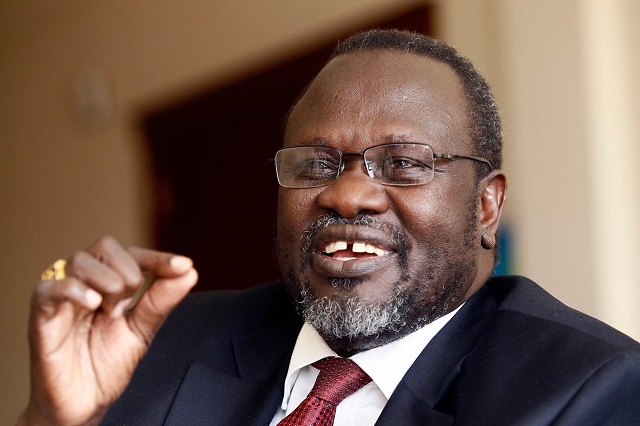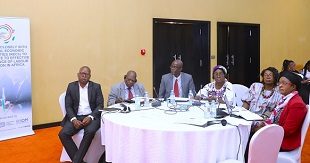
Juba, South Sudan | Xinhua | South Sudan’s oil and gas sector is being crippled by years of sanctions imposed by the Security Council following the outbreak of armed conflict in the country in 2013, experts said on Tuesday.
Puot Kang Chol, Minister of Petroleum, said that the sanctions are curtailing the country’s efforts to fully develop and exploit the vast oil and gas sector.
“Concerning sanctions, the future of this country does not belong to those of us who are on this stage, the future of this country belongs to those children who are playing football on the streets, and their future cannot be punished because of our own mistakes,” Kang told investors attending the 5th oil and power conference in Juba, the capital of South Sudan on Tuesday.
“I have been telling those who sanction us over and over again that when you continue to sanction us and you are not helping us on how to solve our internal crisis, you will not be helping the situation,” he added.
He disclosed that Juba is currently producing 170,000 barrels per day in its northern oil fields and is aiming to return to the prewar level of 350,000 bpd within the next few years.
Kang said that they are looking forward to attracting reliable investors to help meet challenges such as high water cuts, lack of heating facilities and the continued depletion of reservoir pressure which are affecting smooth production in the oil fields.
NJ Ayuk, executive chairman of the African Energy Chamber, said sanctions are hindering foreign investment in South Sudan’s oil and gas projects and also preventing the country from harnessing its natural resources.
“The sanctions are making it needlessly difficult for South Sudan to use oil and gas to foster economic growth, create jobs and business opportunities, build capacity and particularly important develop gas-to-power programs capable of minimizing the country’s extensive energy poverty,” Ayuk said.
South Sudan has 3.5 billion barrels of proven oil reserves.
Riek Machar, First Vice President of South Sudan, said the transitional unity government has prioritized using oil revenues to develop infrastructures such as roads and electricity.
The Juba-Bor Road being constructed by Africa Resource Corporation is meant to link South Sudan to neighboring Sudan while the Juba-Terekeka-Rumbek Road being constructed by Chinese firm Shandong Hi-Speed Ltd will connect to the Central Africa Republic.
 The Independent Uganda: You get the Truth we Pay the Price
The Independent Uganda: You get the Truth we Pay the Price


